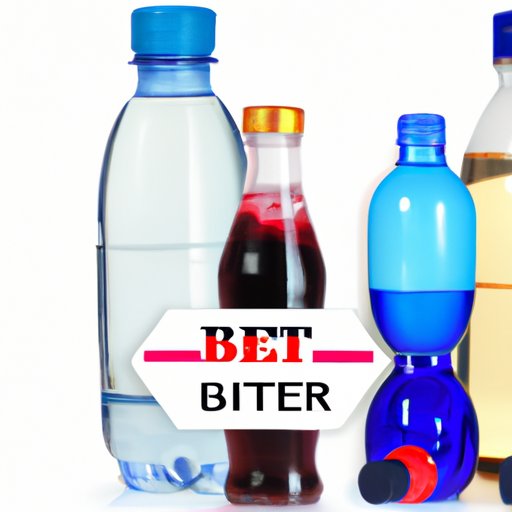
Do Drinks Make You Gain Weight?
With so much emphasis on diet and exercise, many people overlook the role that beverages play in weight management. However, the liquid calories in drinks can significantly impact weight gain or loss. This article aims to provide information and guidance to help readers better manage their liquid calorie intake.
The Impact of Sugary Drinks on Weight Gain
Consuming drinks that are high in sugar, such as soda, fruit juice, and sweetened coffee, is directly linked to weight gain. These drinks offer little to no nutritional value and can lead to consuming excess calories. When consumed, sugar triggers the body’s metabolism to store fat, making it harder to lose weight. Furthermore, sugar suppresses the hormone leptin, which signals to the brain that the body is full, increasing the likelihood of consuming more calories than needed.
Examining the Role of Diet Sodas in Weight Loss
The rationale behind diet soda is that it can replace high-calorie beverages with low-calorie alternatives, thereby aiding weight loss efforts. While this may be true, the artificial sweeteners in diet drinks can affect the body in other ways. Some studies suggest that these sweeteners may disrupt the natural relationship between sweet taste and calories, causing people to consume more calories overall. Furthermore, excessive consumption of artificial sweeteners has been linked to an increased risk of metabolic dysfunction.
The Potential Dangers of Drinking Alcohol and Gaining Weight
Alcoholic beverages, like beer and cocktails, can be high in calories and can contribute to weight gain. For example, a single can of beer contains roughly 150 calories, and a standard serving of wine contains about 125 calories. Furthermore, excessive drinking can lead to consuming extra empty calories, making it harder to lose weight. Drinking alcohol can also lower inhibitions, leading to poor food choices and overeating.
The Role of Hydration in Weight Management
Staying hydrated is essential for overall health, and it can also support weight loss efforts. Water is the best drink to consume when trying to lose weight, as it contains no calories and can help flush out excess fluids from the body. Other good options are herbal tea and black coffee, which can provide additional health benefits. Moreover, people often mistake thirst for hunger, leading them to eat when all they really need is water.
The Benefits of Tracking Liquid Calories
Monitoring the number of calories consumed in drinks is essential for weight management. While it is tempting to focus solely on food, liquid calories can add up quickly and significantly impact weight gain. By tracking liquid calories, individuals can take control of their weight and lead a healthier lifestyle. There are plenty of apps and online tools that can help track liquid calorie intake and monitor overall macronutrient and micronutrient consumption.
Conclusion
Drinks can significantly affect weight gain or loss, and being mindful of liquid calorie intake is crucial for weight management. Consuming sugary drinks can lead to consuming excess calories and disrupt metabolic processes, while alcoholic beverages can be high in calories and lead to poor decision-making with regards to food. Staying hydrated is essential for overall health, and drinking water and herbal teas are the best options when trying to lose weight. Lastly, tracking liquid calories can help individuals take control of their weight and lead a healthier lifestyle.




